Author: Shumo Chu,Manta Networkfounder
original:Tornado.cash and the Future of On Chain Privacy
On August 8, the U.S. Department of the Treasury’s Office of Foreign Assets Control (OFAC) added Tornado.cash and its associated Ethereum address to the “Specially Designated Nationals List” (SDN);
On August 10, a Tornado.cash developer was arrested by the Dutch Fiscal Information and Investigative Service (FIOD) in Amsterdam;
secondary title
What is Tornado.cash? How does it work?
Tornado.cash is a mixer for ETH and ERC20 tokens, which allows users to deposit ETH/ERC20 into the mixing pool and withdraw the same amount of tokens in the future.

Here's how it works:
Deposit: Users can deposit a fixed amount of tokens (for simplicity, we take 0.1ETH as an example in the figure, Tornado.cash also has 1ETH, 10 ETH, and 1,000 ETH levels), and then get a unique secret deposit prove. After the deposit operation, 0.1ETH is transferred from the user's wallet account to the contract address of Tornado.cash on Ethereum.
secondary title
Who is using Tornado.cash?
Seeing Tornado.cash as a "money laundering tool for hackers" is a fixed bias, which I believe comes mostly from "coloured" coverage in the media: when hackers use Tornado.cash to conceal stolen assets, this is often the case There are many newspapers; however, there are few media reports on the completely legal and reasonable use of Tornado.cash.
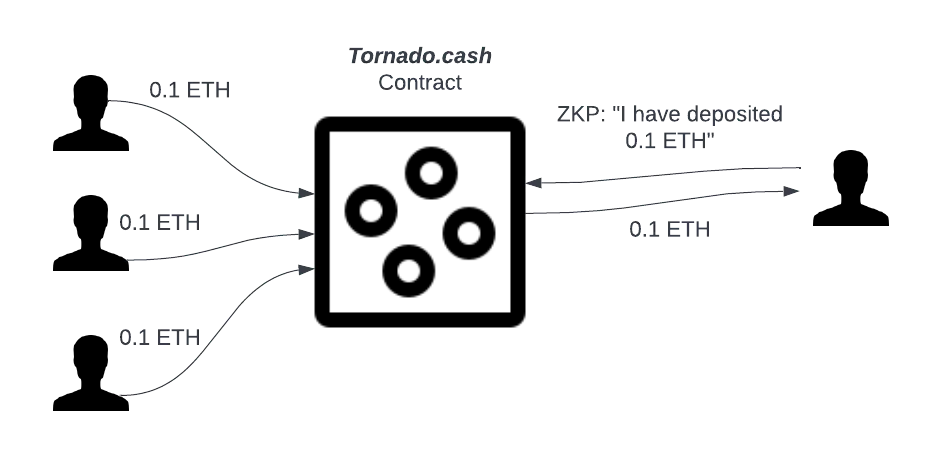
sourcesource):
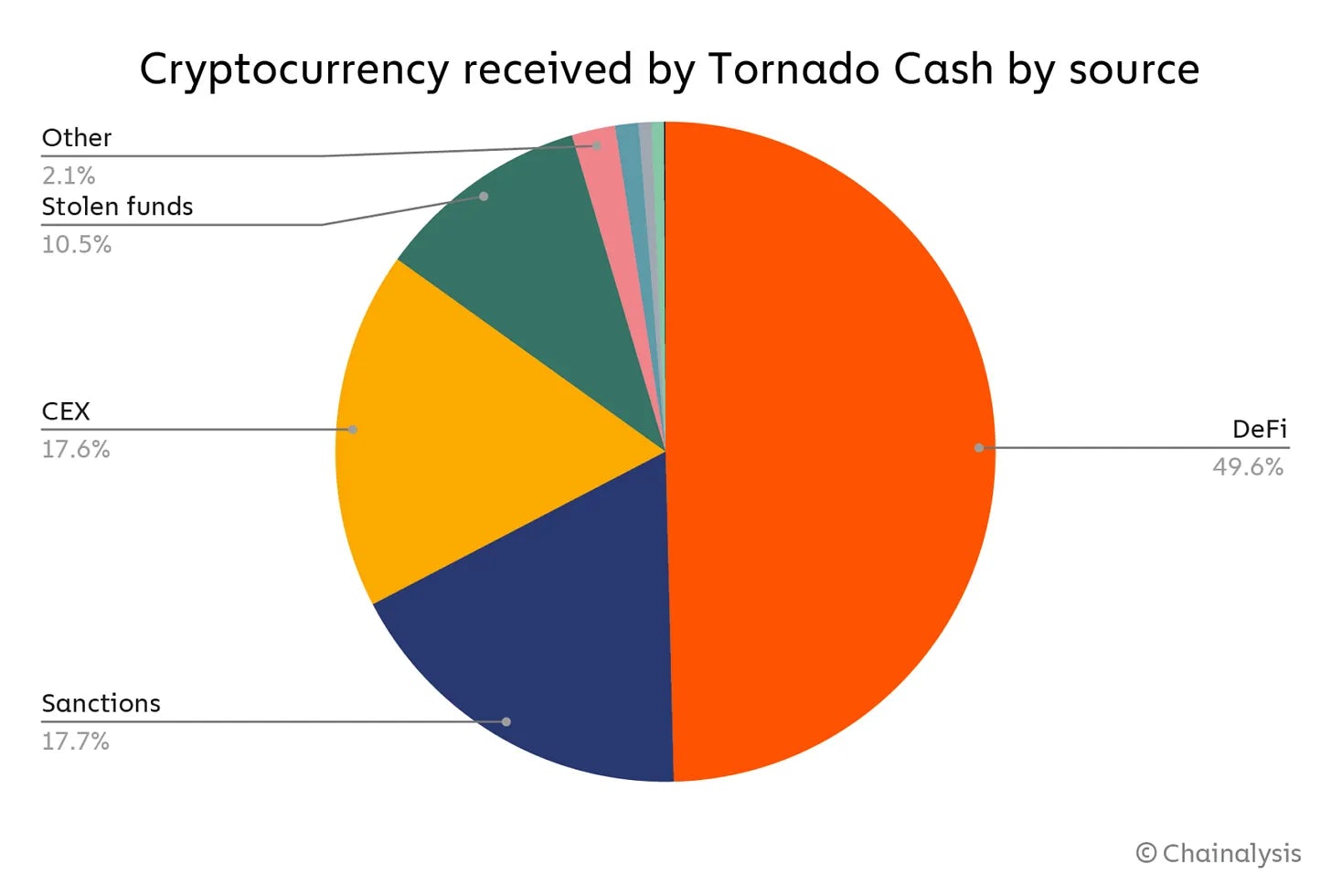
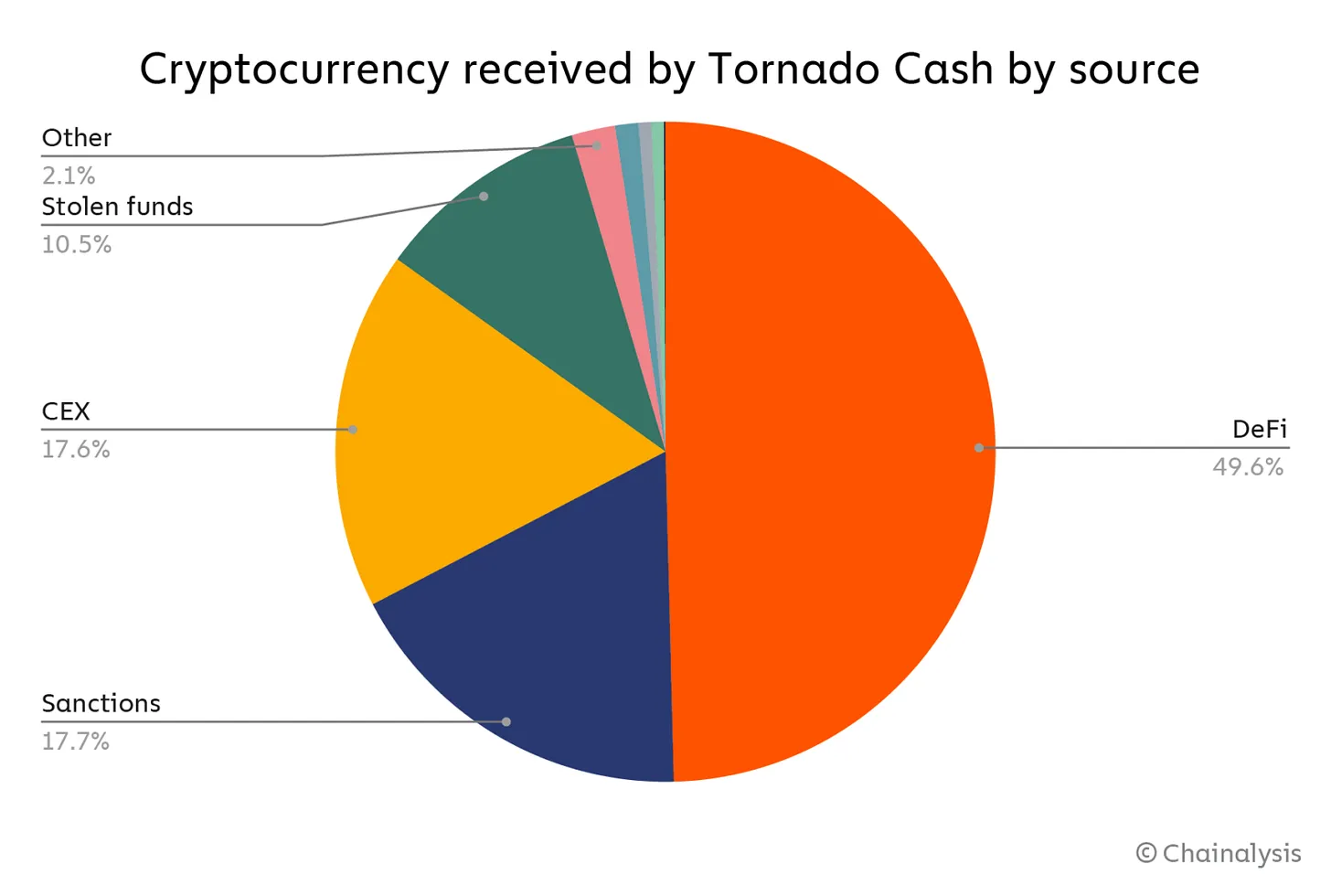
first level title
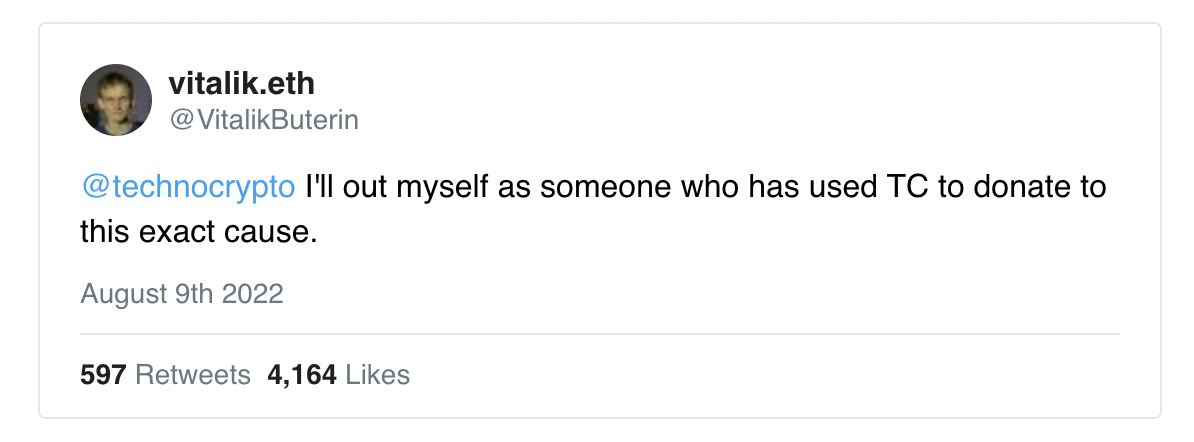
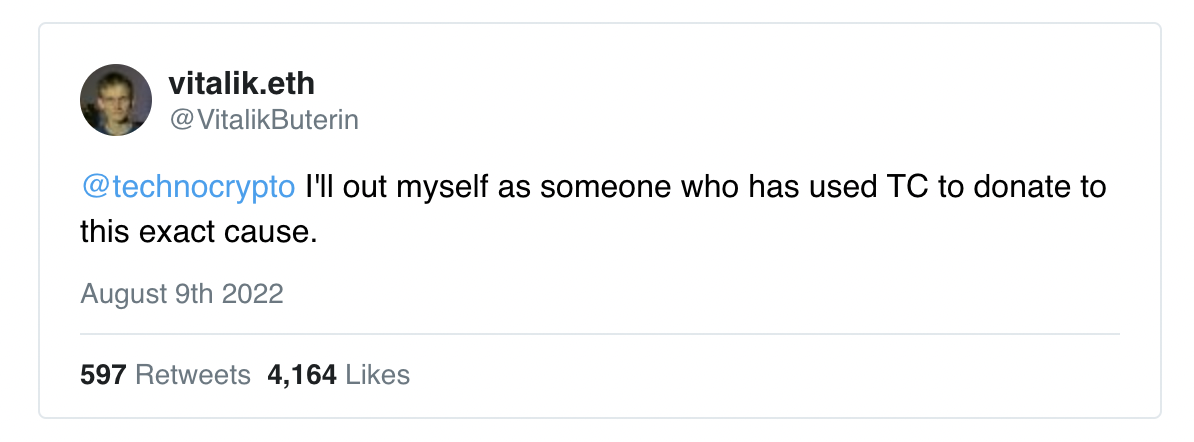
The Future of On-Chain Privacy
we should arrive, we will arrive
— Crypto Hilbert (exactly me)
Without privacy, the whole Web3 revolution is meaningless. Without privacy, how can Web3 empower individuals to be sovereign and escape the clutches of regulatory capitalism?
Future Direction 1: Provide better products for ordinary users, not just hackers
In a permissionless system, it is difficult to completely prevent others from doing evil. However, we should start by building better products for regular users, not just hackers. Here I want to quote a tweet from @dankrad:
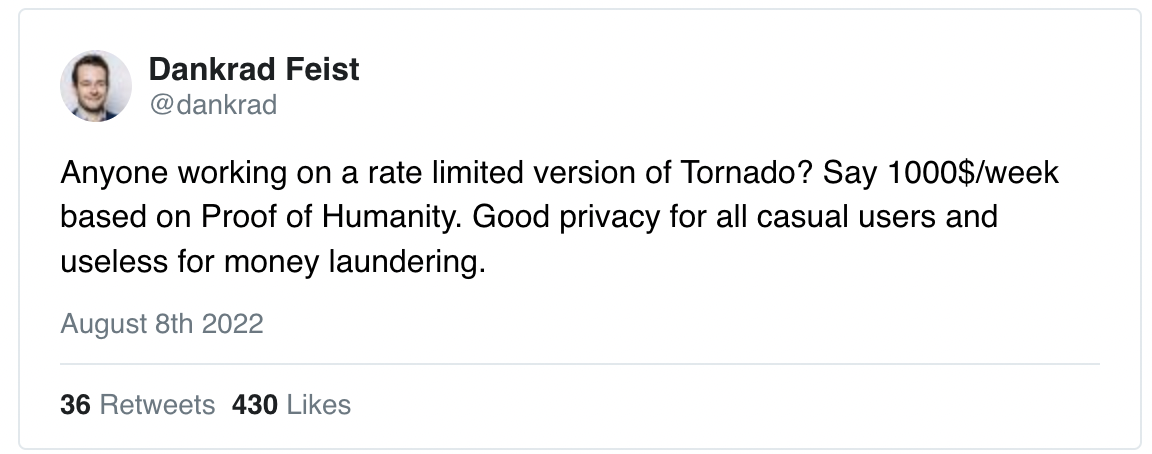
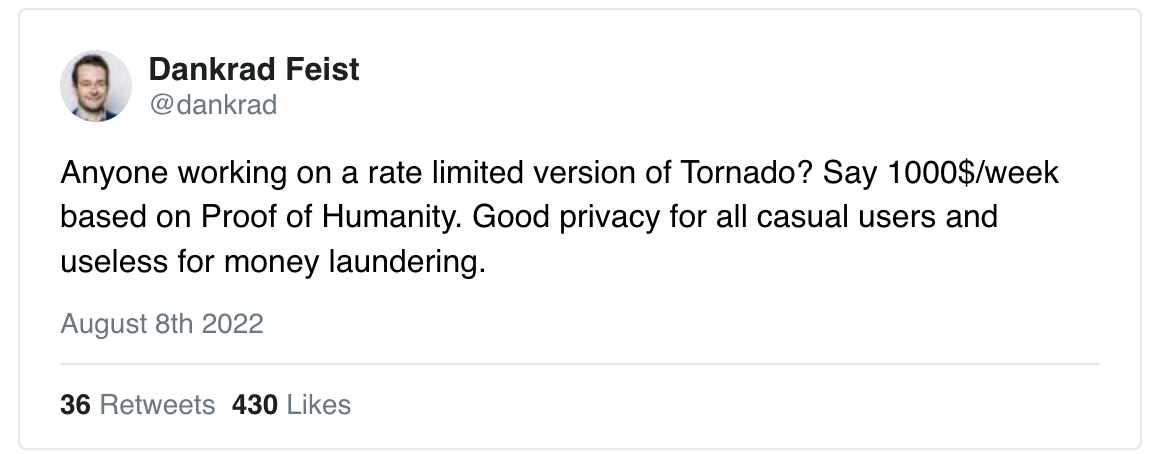
(Anyone want to make a Tornado with limited usage? For example, based on non-robot proof (PoH), the maximum amount available per person per week is $1,000. This is a good privacy product for ordinary users, But it's useless for money laundering)
For ordinary users, the design of Tornado.cash has two points that are not very friendly:
1. Before the launch of Tornado.cash Nova, users had to deposit tokens with fixed denominations (0.1 ETH, 1ETH, 10 ETH, 100 ETH), which caused a lot of user experience friction.
2. Based on L1, Tornado.cash needs to consume a lot of gas fee. A Tornado.cash deposit on Ethereum needs to consume 1 million gas, so in the case of 50 GWEI, the fee is about 0.05 ETH, and 100 GWEI requires 0.1 ETH, which is not friendly to ordinary users.
Fortunately, there are good technical solutions for both of these points. Like ZCash/Tornado.cash Nova/MantaPaySuch an agreement does not need to deposit a fixed amount of tokens, by deploying privacy solutions on L2, even likeZKOPRUBy building a private L2, the problem of gas fee can be solved to a large extent.
Future Direction 2: More Privacy Killer Apps
The use cases for privacy in Web3 are not limited to minting public tokens as privacy tokens. In fact, from the perspective of users, public tokens need to be minted as private tokens to obtain privacy, and at the same time need to be redeemed for public tokens before they can be used, which in itself is a bad product experience. A normal user should be able to apply the privacy coin itself in different Web3 scenarios.
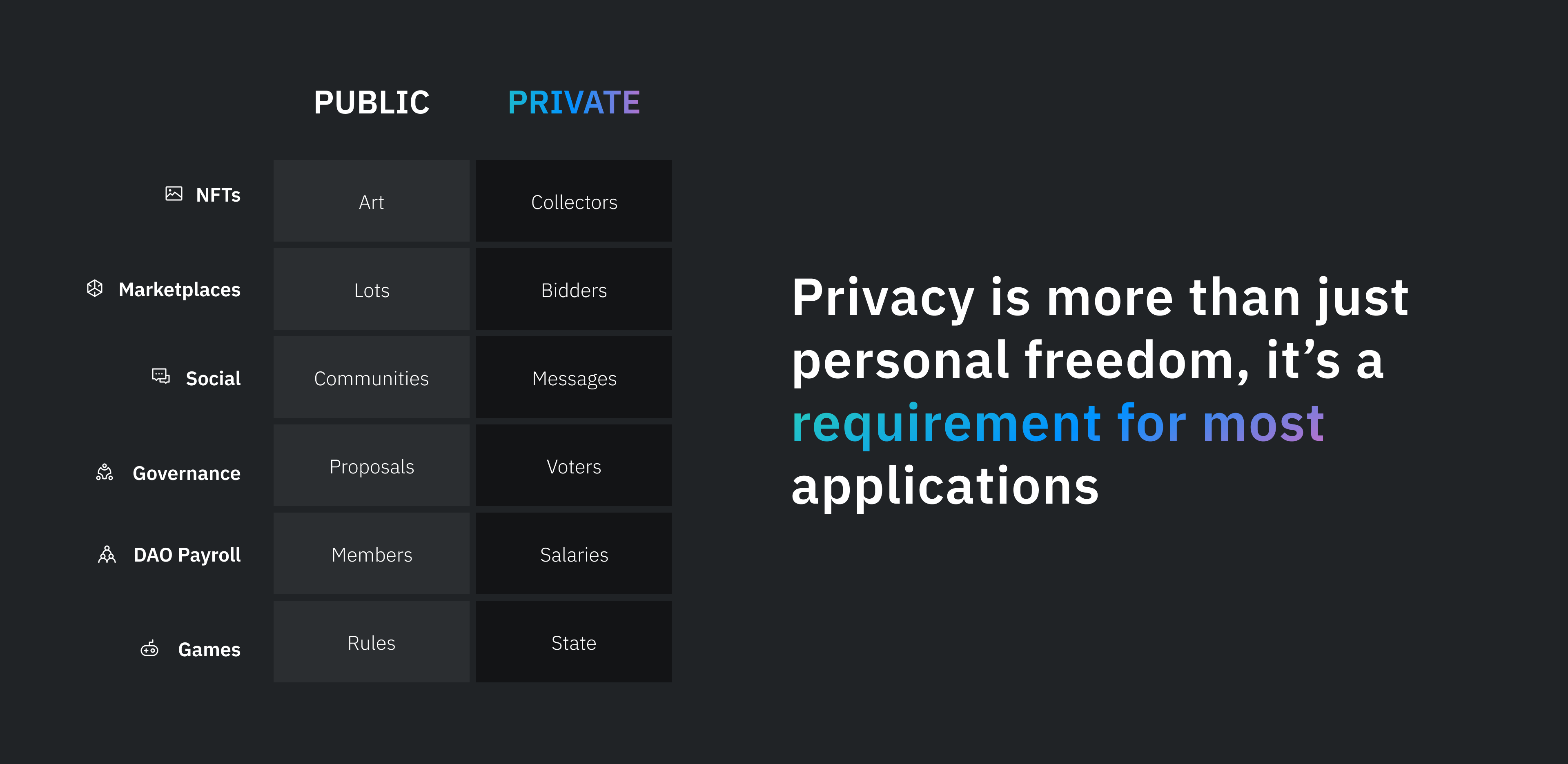
(Privacy application scenarios, from: CTO of Manta,Brandon Gomes,Check out hisPolkadot Decoded Talk )
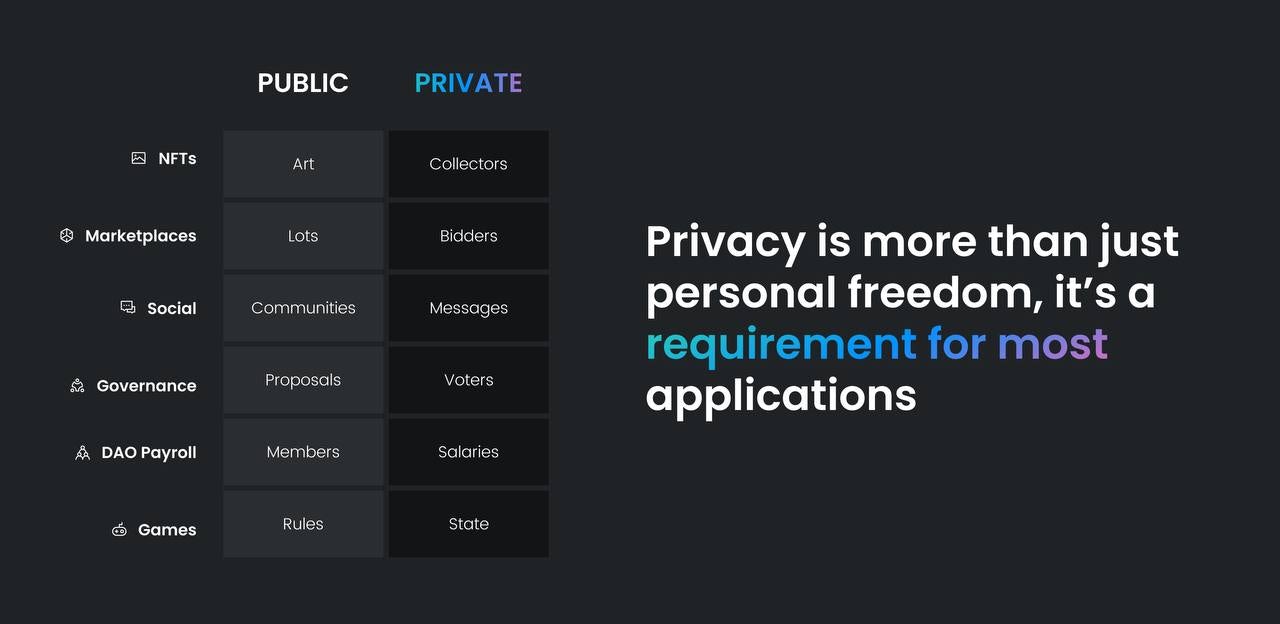
In fact, there are many applications in which privacy is a necessity rather than a bonus, such as:
DeFi: Financial privacy is one of the most high-value application scenarios. Many users will not use DeFi because of the completely transparent transaction records. In addition, private DeFi can also alleviate the MEV problem to a certain extent (completely solving the MEV problem is still a difficult research topic).
NFT: Using NFT as an avatar is the biggest source of privacy leakage (direct disclosure of public addresses and user identities). Privacy NFT/Privacy NFT Auction/ZKP-based NFT Proof of Ownership protects privacy without sacrificing utility.
DAO tool: As the future organizational form of human beings, the field of DAO tools needs privacy very much. For example, in order to avoid vicious competition and retaliation against voters, we need privacy voting; in order to maintain the healthy development of the organization, we need privacy salary payment system ; Private message boards are required for internal anonymous feedback. There are many, many other similar DAO tools with privacy requirements.
Interactive on-chain games: If a game is played on-chain, each player needs to hide his real state, otherwise it will cause a huge MEV problem. If we want to build an open metaverse on the chain, privacy must be a must, not an option (see Geometry Research'smental poker framework)
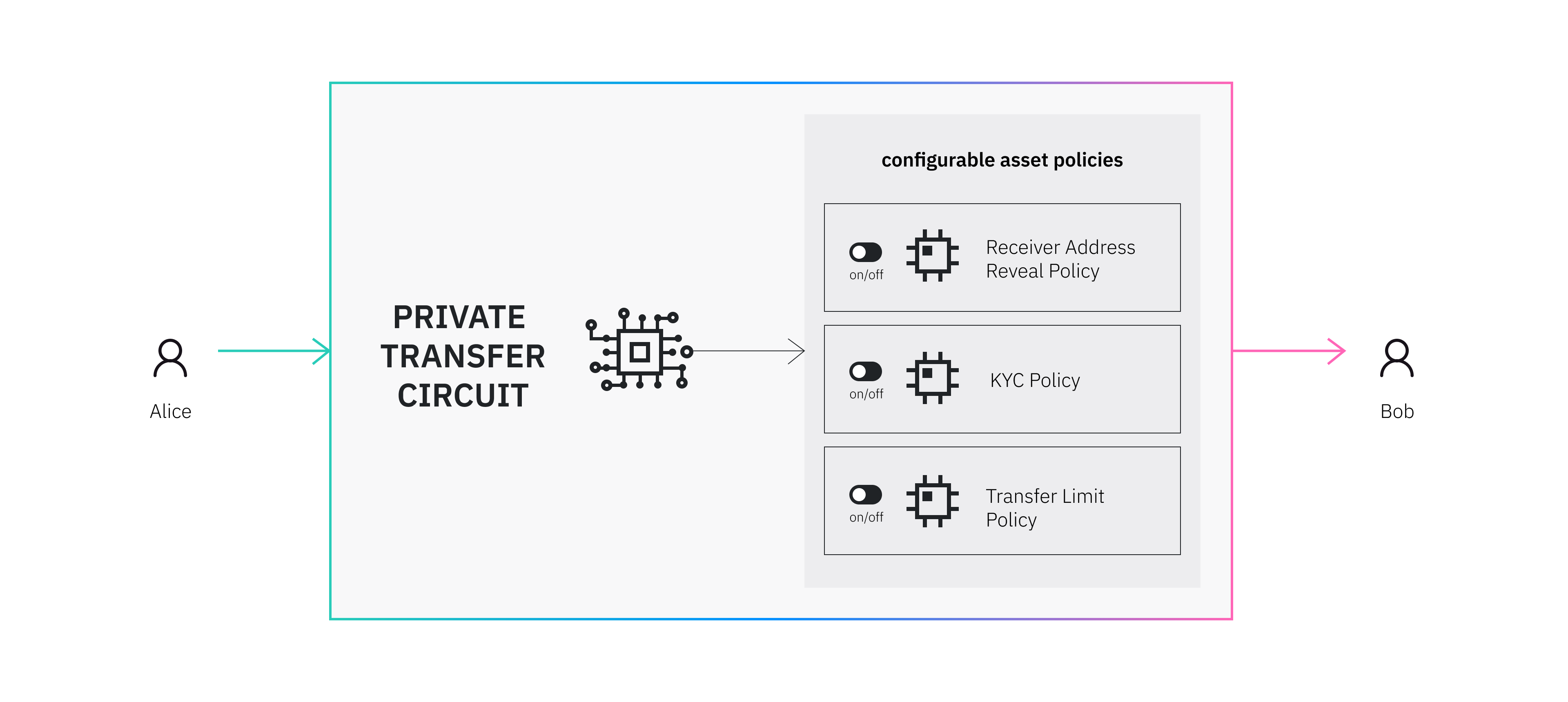
source:
source:
Needless to say, the future of Web3 privacy needs to combine all the directions mentioned above, which is why our team (manta.networksecondary title
About Manta Network
Manta Network is committed to building a better Web3 world through privacy protection. Manta's product design starts from first principles, and provides end-to-end privacy protection for blockchain users through leading cryptographic architectures such as zkSNARK. While protecting privacy, Manta is interoperable, convenient, high-performance and auditable, allowing users to conduct private transfers and transactions between any parachain assets. Manta's vision is to provide more convenient privacy protection services for the entire blockchain world.
Manta's founding team consists of several cryptocurrency veterans, professors, and academics whose experience includes Harvard, MIT, and Algorand. Manta's investment institutions include Polychain, ParaFi, Binance Labs, Multicoin, CoinFund, Alameda, DeFiance, and Hypersphere, etc. Manta is also a grant recipient of Polkadot's official Web3 Foundation, a member of the Substrate Builder Program, and a member of the Berkeley University Blockchain Accelerator.
We're Hiring!
Visit to view open positions:https://jobs.lever.co/MantaNetwork
Follow the official channel for more information about Manta/Calamari:
Website:https://manta.network/
Github:https://github.com/Manta-Network
Twitter:https://twitter.com/MantaNetwork
Medium:https://mantanetwork.medium.co
Telegram:https://t.me/mantanetwork
Discord:https://discord.gg/ZtSuSKRy8X
Telegram Chinese:https://t.me/mantanetwork_zh
Twitter Chinese:https://twitter.com/manta_china